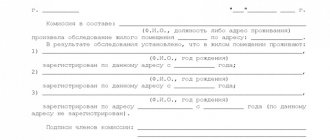Cost of registering a will for an apartment with a notary
To determine the full cost of registering a will, it is necessary to establish the entire list of expenses:
- state duty;
- legal services;
- technical services.
State duty
The law establishes the need for notarization of orders. In practice, the state fee is charged for the notary’s signature and entering data about the will into the Unified Register.
State duty rates for notarial acts are contained in the Tax Code. In 2021
Notarization of a will costs
100 rubles. (Article 333.24 of the Tax Code of the Russian Federation).
Legal services
Legal services mean checking a document for compliance with the law. If the test disposition contains conditions that violate the law, then the will may be invalid.
In addition, the notary is obliged to warn the owner about the need to protect the rights of compulsory heirs. The testator is required to sign that the information has been communicated to him.
Additional legal assistance from a notary is the preparation of a draft expression of will. Development of a project will be required if a citizen is going to draw up a complex will, which contains:
- creation of an inheritance fund;
- testamentary refusal;
- testamentary assignment;
- division of property between many claimants;
- appointment of an executor of the will.
It is not necessary to use the services of a notary in this matter. A citizen has the right to draw up a project independently or involve a lawyer.
Technical Services
It is unlikely that you will be able to avoid paying for technical services. Of course, the testator can draw up the expression of will with his own hand. However, the notary will insist on a printed version.
Thus, technical services mean typing and printing of documents. Often such services are imposed.
However, the law does not give priority to a printed document over a written one. If the notary refuses to certify the written expression of will, the testator may file a complaint with the Regional Notary Chamber.
Is it necessary to notarize a will?
Making a will allows a citizen to dispose of property in the event of his death. For this document to enter into legal force, it must be notarized . compose the text of the order yourself or provide it to a notary. However, in any case, the notary must check the legality of the will and register it in the prescribed manner, otherwise such a document will be invalid or may be challenged.
The role of a notary when certifying a will is to verify the following facts:
- Citizen's capacity.
- Voluntariness of the will (the will should not be drawn up under the influence of other persons).
- Correctness of indication of heirs' data, as well as property.
- Legality of signing a will - if a citizen is unable to sign the will on his own due to certain circumstances, then another citizen can do this in the presence of a notary.
- If the will is drawn up independently, the notary checks whether its conditions contradict the law or his own logic.
Information
The notary explains to the testator and witnesses about the need to maintain the secrecy of the will, as well as the provisions of the law regarding the rights to an obligatory share of the inheritance of other citizens established by law (Article 1149 of the Civil Code of the Russian Federation).
What determines the cost of registering a will?
The cost of processing an order depends on the following factors:
- Amount of state duty . The amount of the state duty is established by law. The notary office cannot change it at its own discretion.
- Amount of payment for legal and technical services. The amount of payment for technical and legal services of a notary is established by the notary chamber independently. Therefore, amounts can vary significantly even in offices located nearby.
However, the maximum cost of legal and technical services on the territory of a constituent entity of the Russian Federation is established by the Regional Notary Chamber. The office cannot determine a tariff that exceeds the permissible norm.
You can check the maximum tariffs for notary services on the website of the Federal Notary Chamber.
- Lawyer costs. The cost of a lawyer depends on the testator. A citizen may refuse to hire an additional specialist. However, when drawing up a complex declaration of will, it is advisable to enlist the support of a competent lawyer
How to make a will correctly
The accuracy of its execution depends on the literacy of the text of the last expression of will. It must contain items identifying the testator and confirming his rights to the bequeathed property. An incorrectly drawn up document gives rise to challenging it in court. Then the issue of transferring rights to the abandoned property is resolved by law.
Inheritance by law presupposes priority in receiving inheritance among relatives. A will allows a testator to leave an estate to a person, organization, or government. It can be open or closed, but without notarial confirmation it is deprived of legal force and will not be executed.
Requirements for the maker of a will
A will is recognized as legal if the testator was an adult and legally competent at the time of its preparation. The latter refers to mental and mental integrity, absence of alcohol or drug addiction. Another requirement regarding the identity of the testator is documentary evidence of his rights to the property.
Required items
Requirements for the form and content of an application for the posthumous transfer of property rights are regulated by the Civil Code of the Russian Federation. All stages from writing to certification are subject to a strict schedule.
The document must contain the required fields:
- Information about the applicant: the same as in the passport.
- List of heirs and their share in the inheritance.
- Signature and seal of a notary certifying the legality of the act.
- Information about the number of copies.
- Date and place of document preparation.
Inaccuracies, blots, typos, corrections and other defects are not allowed. The text must be presented clearly, clearly and unambiguously. Numbers, dates, deadlines and other data containing numbers are written in words. The surnames, first names and patronymics of all mentioned persons are conveyed in full, without abbreviations.
Required documents
The package for drawing up a will includes documents identifying the testator and confirming the rights to the property that he intends to leave to his heirs.
Standard set includes:
- testator's passport;
- evidence of his rights to property: purchase and sale agreement (if it is a house or apartment), exchange, donation, extract from the real estate register.
It is recommended to immediately submit certificates of sanity from medical institutions. This requirement is mandatory for elderly people or for any doubts that may arise regarding this item. The last remark applies to people who were previously registered in the relevant medical institutions, but at the time of drawing up the will were recognized as healthy. The testator must have with him information about the persons whom he intends to mention in his order.
Heirs under a will can be persons who are not related to the owner by family ties. The law protects the interests of disabled relatives - persons who are dependent on the testator. For example, a non-working wife will receive her share of the property after the death of her husband, regardless of whether it is in the will or not. Minor children, relatives, along with adopted ones, and elderly or sick parents can count on their share.
Along with the property, debt obligations are also transferred. Debts on inherited property are called encumbrances. The heirs may refuse such property.
Drawing up a will for a house is subject to the same rules as drawing up a document for an apartment.
Do expenses depend on the amount of inherited property?
The cost of services for registration of a will does not directly depend on the amount of property of the testator:
- the state duty is a fixed amount;
- the amount for legal and technical services is a fixed amount;
- the cost of designing a project is not established by law.
Expert opinion
Stanislav Evseev
Lawyer. Experience 12 years. Specialization: civil, family, inheritance law.
Therefore, the cost of registering an order depends on the complexity of the project, and not on the volume of property or type of property. The testator will pay the same amount when including an apartment, car, bank accounts and other property in the will.
What should the testator know?
- A will can be drawn up in favor of any persons, regardless of relationship, as well as in favor of an organization, or an inheritance fund can be established using the funds left behind.
- A testamentary disposition may include all existing property or individual items. For example, you can draw up a will for an apartment with a notary, and the rest of the property will be inherited by law in order of priority.
- There can be several wills, including those drawn up at different times, and containing instructions regarding different types of property.
- If the same object (thing) appears in several documents, then the order most recently written is taken into account.
- You can open a will at any time and also revoke it by sending an application to a notary, of which the citizen will receive a corresponding certificate.
Freedom of testament is limited by only one circumstance. Regardless of the contents of the document, a certain part of the inheritance must be allocated as a mandatory share. Obligatory heirs include disabled parents, spouse, children of the deceased, as well as persons whom he supported at his own expense for at least one year before death.
If the listed categories of dependents are not mentioned in the will, they will be allocated ½ of the share of the inheritance that they would have received by law (in the absence of a will). This share is allocated from non-willed property, and in its absence, from what is bequeathed to other heirs.
Costs for changing or revoking a will
The testator bears the costs not only for drawing up the will, but also for changing or canceling it.
By changing the order we mean drawing up a second document that fully or partially duplicates the composition of the property provided for in the main document. It is also subject to certification by a notary.
State fees and other notary services for changing an order are paid in the same amount. The cost of the project depends on the complexity of the document.
If the expression of will is canceled, a cancellation order is issued. The cost of the document is 500 rubles.
What documents are needed for registration?
After certification of the will, the testator keeps the original document, and a copy, without fail, remains with the notary. The notary is also obliged to enter an electronic image of the document into the unified notary information system. This service exists for registering a will and the possibility of its restoration in case of loss. And also, if the heirs do not know whether the will was drawn up and by which notary, then such information can be found out through any other notary using this register.
To register a will, you must provide the notary with the following package of documents:
- Identification document of the testator.
- Heirs data.
- Documents allowing the identification of bequeathed property.
To reduce the likelihood of challenging the will in the future, you can also provide a certificate of absence of mental illness . In some cases, the notary himself may require a certificate from a psychoneurological and drug addiction clinic if he doubts the sanity of the testator.
Where can I make payments?
A citizen can pay the costs of registering a declaration of will as follows:
- Through a bank branch. To avoid mistakes with the transfer of funds, you must obtain payment details from the notary's office.
- Directly at the notary's office. It is necessary to clarify the form of payment in advance. Notary offices rarely have payment terminals. Therefore, the amount for the will must be prepared in the form of cash.
Closed will in an envelope
A testamentary document is called closed if the testator brings it to the notary's office packed in an envelope. In this case, the contents of the will are known only to its maker. The notary places it in another storage envelope, which is marked with the date, signatures of 2 witnesses, the notary's signature and his seal. The testator receives a certificate of acceptance of the testamentary disposition, and the document itself is stored in the notary's office. The notary must open the will within 15 days after the death of the testator.
Genealogical research and examination
To prove kinship in the absence of documents, there are two courses of action: archival search and judicial proceedings.
The initial stage of the research will be a genealogical examination - a research stage with the assessment of data already available, their adjustment and systematization. Next, a search for documents must be carried out to trace the history of the family, and, if necessary, the nationalities of relatives. The result of the legal service will be a report on the places of the search, the documents actually received, a pedigree diagram, a family tree (full or in part).
If the available documents are sufficient, further registration can be carried out by a notary; if there are partial or complete absence, then in court. But it should be borne in mind that you cannot “run” to court unprepared. One more stage of action is needed - pre-trial preparation of the evidence base in order to obtain the desired judicial result of the relationship.
Procedure for registration of inheritance
Registration of inheritance through a notary or court procedure involves the following actions:
— determination of hereditary shares;
- opening an inheritance case with a notary, and in the case of a judicial option - filing a statement of claim in court;
— collecting the necessary documents, restoring lost documents (this takes half the time and effort, the process is burdened by large queues at each instance, there can be from 2 to 8 instances);
— working with a notary or defending interests in court (the simplest thing is filing documents, the most difficult thing is defending your legal position and proving to the notary the correctness of your actions and requirements, disputes over the notary’s refusal to accept documents, issuing a certificate of inheritance);
— obtaining a certificate of inheritance or a court decision;
— registration of rights to inherited property with the Registration Authority (MFC, Federal Registration Service).
When to register an inheritance with a notary, and when - in court?
According to current legislation, documents are completed in an indisputable manner by a notary, but the deadline for entering into an inheritance should not be missed (if this matters in your case). All title documents must be in order, documents on family relationships (or a will) must be available, and additional documents requested by the notary when registering an inheritance can be collected.
When the necessary documents are missing, the deadline for entering into an inheritance has been missed, the property of the testator has not been formalized, as well as in cases where it is necessary to establish some legal facts through an application (for example, kinship, or to prove that the inheritance was accepted within the prescribed period) or through a lawsuit directly establish the right of ownership to inherited property, in disputes between heirs, to non-privatized property, and in other cases - registration of inheritance occurs in court. The process of completing documents in complex situations can take from several months to several years.
About the will...
Particular attention should be paid to the date of the will, if any. Depending on the year it was written, the estate may be distributed among the heirs differently. Perhaps in some cases it is more profitable not to use a will, or to choose the most useful one from several.
Consult our specialists! Phone calls are free.
And about other inheritance issues...
In addition to the process of registering an inheritance, unforeseen obstacles to obtaining the desired inheritance may appear on your way: a will is contested, new heirs have appeared, the inherited property itself is unknown, a dispute arises about a medical error or the heir is recognized as unworthy (which affects the distribution of inherited shares)... Heirs do not always know about the full estate, about all the property of the testator, about heirs from previous marriages, about written wills (from one to many options). Only a professional who has experience working on these cases can foresee various options and prevent the consequences of using various documents presented.
An important subtlety in the volume of inherited property
It is important to remember one more legal subtlety about inheritance: the inheritance received is the private property of the heir. It is not included, for example, in the joint property of the spouses, even acquired during marriage, and is not subject to division of property during a divorce.
Registration of inheritance in Kalininsky, Vyborgsky, Krasnogvardeysky district of St. Petersburg
The organization's office at 22 Grazhdanskiy Ave., St. Petersburg serves both citizens of nearby areas and all citizens of St. Petersburg and the Leningrad region, everyone is welcome to come! We know the notaries who draw up documents when conducting inheritance cases, we know their requirements (each notary, while complying with the law, also imposes his own additional requirements for the documents provided and has special opinions on a number of issues).
If registration of an inheritance is necessary in court, then the Kalinin and Vyborg courts are our favorite courts, we know the requirements of judges on procedural issues, and are ready to protect your interests. Over the years, we have learned the requirements of almost all courts of St. Petersburg and regional courts. We know how to present, what to ask for, and how to win what the Customer needs.
Registration of inheritance in Primorsky, Central district and other areas of the city
Our two more offices are located in the Primorsky and Central districts of St. Petersburg. Of course, we work in all other areas of the city and region. We will quickly register an inheritance in Kirovsky, Vasileostrovsky, Moscow, Admiralteysky. Frunzensky, Petrogradsky districts of the city.
We will also register an inheritance in the Leningrad, Pskov, Novgorod regions, Karelia and other regions of the country, in Belarus, and Ukraine. At the same time, we formalize rights to real estate (urban housing, country houses, land plots, shares), inheritance of shares in the authorized capital, shares, cash deposits, cars, etc. Contact us for help.
Registration of inheritance in court
When registering an inheritance in court, it is important to correctly complete all procedural steps, go to court within the prescribed period, file a statement of claim (and in special proceedings, a statement to establish facts) that meets the requirements of the law. 50-90% of the success of the case depends on how the statement of claim is drawn up.
You can see important information on defense in court in the section “Defense in Court. Conducting court cases." Direct participation of our lawyer or advocate in the trial will increase your chances of winning many times over. We advise you to contact us for help!
More on the topic:
The pages of the site contain a lot of interesting information obtained over the years of work by our specialists. You can read it by going to thematic articles (right column), as well as the pages “Inheritance of land plots, houses”, “Inheritance of apartments, rooms”.
Advantages and disadvantages
The introduction of a novella about the possibility of a married couple to formalize their expression of will jointly has its pros and cons.
So, the advantages of this method of transferring property to heirs are as follows:
- no need to draw up two different documents;
- simplification of the procedure for dividing property by heirs;
- the opportunity to jointly decide the fate of your property;
The disadvantages of this option for disposing of the property of a husband and wife are:
- when the surviving spouse accepts the inheritance (usually under the stated conditions in the event of the death of one of them), the remaining heirs indicated in the document receive the right to inherit the property only after the death of the second spouse, which often leads to legal disputes;
- difficulties in disposing of property by the surviving spouse, taking into account the presence of direct heirs to the property specified in the will;
- the right of the surviving spouse provided for by law to issue a subsequent order or cancel an existing one, which does not guarantee the execution of the will of the deceased.
If the marriage between the testators is dissolved, the formalized declaration of will ceases to be valid.
How does the notarization procedure work?
A document is recognized as valid only if it has undergone mandatory notarization. The notary is obliged to perform all necessary actions to formalize the citizen’s will. However, in practice, the opportunity to contact a specialist is not always available. In this case, other persons can certify the will.
The list includes:
- chief doctors of medical institutions, directors of nursing homes and their deputies;
- captains of ships, if the testator is on the ship, and stops at ports are not made. The rule applies only to ships that fly the Russian flag;
- chiefs and leaders of expeditions;
- heads of military districts and units, if it is necessary to formalize an order from a serviceman or one of his family members;
- heads of prisons, if a person is serving a sentence in prison.
You can find out the cost of a will from a notary when you contact the office. Please note that representatives of the organization independently set prices for their services. If the document is certified by another person, the usual procedure is performed free of charge.
Video
Annulment of a will - general information
A testator who changes his mind about transferring property to specific legal successors after his death must cancel the will, and this transaction must be certified by a notary . In this case, the testator must not notify the heirs of the cancellation or change of his last will. This right is granted to the testator in Part 2 of Art. 1130 of the Civil Code of the Russian Federation .
The annulment is made in the form of a free written document, which is then certified by a notary. It is worth noting that a document is subject to complete cancellation only in the case when the testator wishes to transfer all the property and other rights indicated therein in full to another person. If the question concerns only part of the property and rights, then such an action is called a change.
Who can act as an heir:
- Relatives.
- State.
- Legal entities and non-profit organizations.
- Other individuals.
Gift deed and will - the main differences
What is the difference between a deed of gift and a will? Legally, both concepts imply the free transfer of ownership of any real estate to third parties. However, each option has its own characteristics. The main difference is the moment of transfer of ownership rights to the object:
- when registering a deed of gift, ownership of real estate begins at the moment of signing the donation agreement and after its corresponding registration;
- When drawing up a will, the heir gets the opportunity to personally dispose of the property only after six months from the death of the testator.
When choosing a method for transferring rights to an apartment or other real estate, you need to take into account other nuances - the cost and complexity of the registration procedure, taxation issues, and the possibility of canceling orders made.
How much does it cost to inherit legally?
In the absence of a will, family members handle the drafting. The order and degree of relationship is of key importance. In Moscow, expenses will include (current in 2021):
- Applying for inheritance. There is no need to pay a fee to complete an application for ownership. You will only have to spend money on UTP. In 2021, the reward is 1000 rubles.
- Confirmation of relationship. Certificates of blood ties with the deceased are issued by civil registry offices free of charge. For duplicate birth certificates you will have to pay a fee of 350 rubles.
- Property documents. For transport, equipment and other movable items, a report from an independent appraiser is required. Imprisonment in the capital costs 3,000 – 10,000 rubles. The inheritance of a plot may raise the question of land surveying. The complex of works will cost 10,000 – 15,000 rubles.
- Obtaining a certificate. Depending on the degree of relationship, applicants need to pay a fee of 0.3% or 0.6% of the total assessment. Costs for technical and legal support are determined by the type of property. A document confirming inheritance of an apartment will cost 6,000 rubles. A separate tariff applies to foreign assets - 3,000 per object.
- Registration. The fee for entering information into the state register (USRN) for individuals is 2,000 rubles. If an organization is involved in registering the inheritance, the rate will increase to 20,000 rubles (Article 333.33 of the Tax Code of the Russian Federation). To officially change the owner of a vehicle in the traffic police database with simultaneous replacement of signs, you will have to pay 2850.
The procedure will become more expensive if you fail to inherit the inheritance on time. Acceptance of the property will have to be proven in court. Costs and conflicts between relatives will increase. Additional costs will be required to protect the property of the deceased, search for assets, and manage them.
Example 1
After the death of the citizen, a car was left behind. According to the conclusion of an independent expert, the car costs 3,800,000 rubles. The deceased did not leave a will for inheritance. After death, no relatives of 1st or 2nd lines were found. As a result, an uncle living far outside of Moscow was called in for the procedure. The relative had to come to the capital several times for registration.
| Expense item | Amount (in rubles) |
| Application for inheritance | 1000 |
| Receiving a report from an independent appraiser | 5 000 |
| Issuance of a notarial certificate | (0,6 × 3 800 000) + 3 000 = 25 800 |
| Registration with the State Traffic Safety Inspectorate with the assignment of new state marks | 2850 |
| Travel and accommodation | 25 000 |
| Total | 59 650 |





